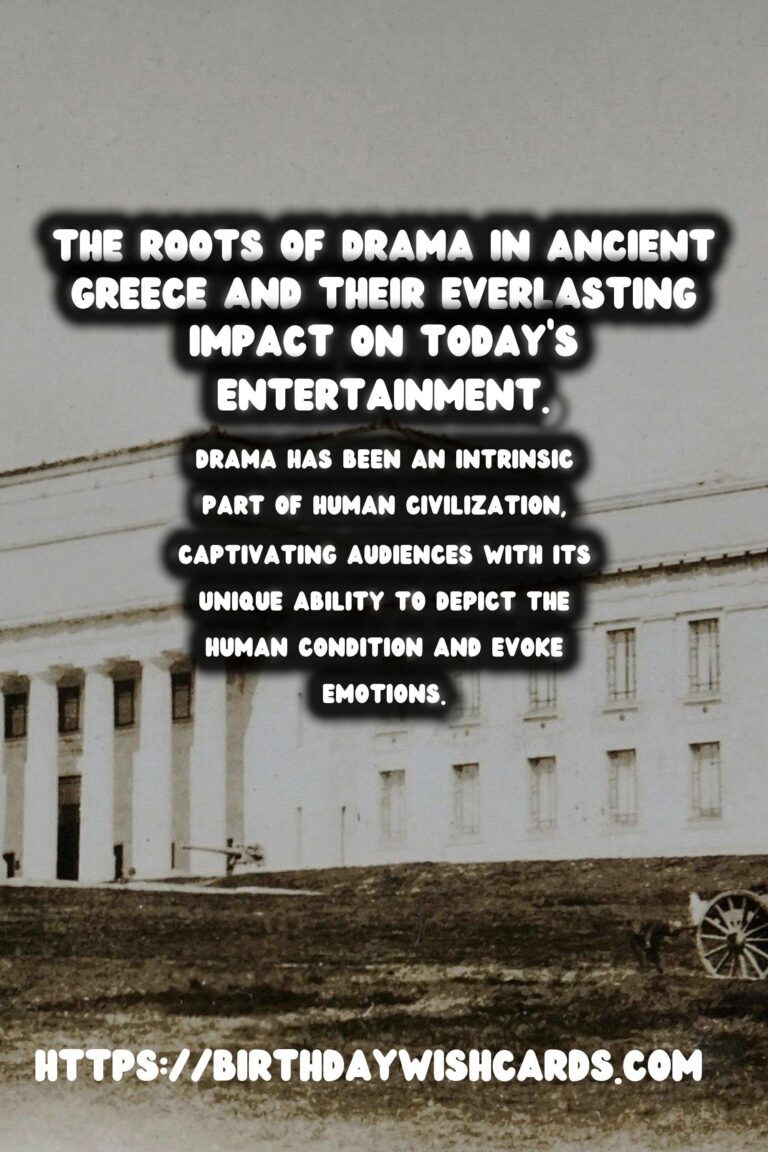
Drama has been an intrinsic part of human civilization, captivating audiences with its unique ability to depict the human condition and evoke emotions. The origins of drama lie deep within ancient Greece, a culture that has laid the foundational stone for modern theatrical performances and entertainment.
The Origins of Drama
The roots of drama can be traced back to the 6th century BCE in Athens, Greece. It emerged during religious festivals that honored Dionysus, the god of wine and fertility. These festivals, particularly the City Dionysia, played a critical role in the development and spread of drama.
The early Greek dramas were far from the complex narratives we see today, often comprising of a single actor and a chorus. The simplicity of these performances, however, did not diminish their impact, as they skillfully wove tales of gods, heroes, and the human experience.
The Contribution of Greek Playwrights
Prominent Greek playwrights such as Aeschylus, Sophocles, and Euripides significantly shaped the evolution of drama. Aeschylus, often regarded as the father of tragedy, pioneered the use of a second actor on stage, thus introducing the potential for more complex storytelling.
Sophocles expanded on this by adding a third actor, allowing for even more intricate plots and character interactions. His works, such as ‘Oedipus Rex’, continue to be studied and performed, highlighting the timeless nature of his contributions.
Euripides, known for his realistic characters and exploration of societal issues, pushed the boundaries of traditional Greek drama. His plays often questioned the status quo, challenging audiences to reflect on the world around them.
The Evolution and Expansion of Drama
From its Athenian roots, drama spread across the Mediterranean, influencing the Roman Republic and Empire. The Romans adopted and adapted Greek plays, eventually developing their unique theatrical traditions. However, it was during the Renaissance that drama experienced a significant resurgence, with playwrights like William Shakespeare and Christopher Marlowe redefining the art form.
The Renaissance period saw the construction of iconic venues like The Globe Theatre, where stories of fate, ambition, and love captured the hearts of many.
Modern Drama and Entertainment
The essence of drama thrives within our modern entertainment industry, from Broadway stages to the scripts of Hollywood. Television series and films continue to draw heavily from the dramatic elements established by ancient Greek playwrights. The themes of tragedy, comedy, and the morally complex hero persist in contemporary narratives.
Streaming platforms like Netflix and Amazon Prime introduce audiences globally to dramatic performances daily, keeping the art form alive and relevant.
The Cultural Impact of Drama
Drama transcends entertainment; it influences culture, engendering empathy and insight into diverse human experiences. It encourages audiences to question norms, reflect on societal issues, and explore the myriad facets of human emotion and interaction.
In an era dictated by rapid technological advancement and societal change, drama remains a vital medium through which stories of all kinds continue to be shared and cherished.
Conclusion
The birthplace of drama, ancient Greece, has left an indelible mark on contemporary entertainment. Its influence persists in the themes, structures, and characters we see today, as modern dramatists continually draw from its rich history.
As it adapts to changing times, drama will undoubtedly remain a powerful reflection of the human spirit, shaping our cultural landscape and enhancing our understanding of each other.
Drama has been an intrinsic part of human civilization, captivating audiences with its unique ability to depict the human condition and evoke emotions. The birthplace of drama, ancient Greece, has left an indelible mark on contemporary entertainment.
#DramaHistory #ModernEntertainment

